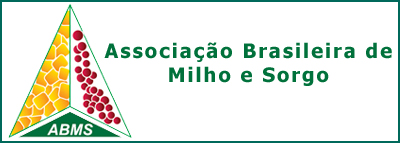GAS EXCHANGE AND ENZYMATIC METABOLISM IN GRAIN SORGHUM VARIETIES IRRIGATED WITH SALINE WATER
DOI:
https://doi.org/10.18512/rbms2020v19e1188Palavras-chave:
salinity, Sorghum bicolor (L.). Moench, oxidative stress.Resumo
The objective of this study was to evaluate the effect of irrigation water salinity on gas exchange and antioxidative system responses of grain sorghum varieties. An experiment was conducted in a greenhouse located at the headquarters of Embrapa Semiarid Agriculture, Petrolina-PE, Brazil. The experimental design was randomized blocks, in a 6 x 5 factorial scheme. Six varieties of grain sorghum irrigated with saline water with five levels of salinity were evaluated. Photosynthesis and transpiration rate, stomatal conductance, leaf temperature, intrinsic and instantaneous water use efficiency, relative water content and leaf turgor potential were evaluated, as well as the activity of the enzymes catalase, ascorbate peroxidase and superoxide dismutase, and shoot biomass production. It was observed that irrigation with saline water causes reduction in the gas exchange and water status of grain sorghum varieties. The antioxidative system was activated in the six sorghum varieties to avoid the accumulation of reactive oxygen species, and the synchronism between the enzymes led to a better response of shoot dry mass production of the Ponta Negra variety.
Downloads
Publicado
Como Citar
Edição
Seção
Licença
Autores que publicam nesta revista concordam com os seguintes termos:- Autores mantém os direitos autorais e concedem à revista o direito de primeira publicação, com o trabalho simultaneamente licenciado sob a Creative Commons Attribution License que permitindo o compartilhamento do trabalho com reconhecimento da autoria do trabalho e publicação inicial nesta revista.
- Autores têm autorização para assumir contratos adicionais separadamente, para distribuição não-exclusiva da versão do trabalho publicada nesta revista (ex.: publicar em repositório institucional ou como capítulo de livro), com reconhecimento de autoria e publicação inicial nesta revista.
- Autores têm permissão e são estimulados a publicar e distribuir seu trabalho online (ex.: em repositórios institucionais ou na sua página pessoal) a qualquer ponto antes ou durante o processo editorial, já que isso pode gerar alterações produtivas, bem como aumentar o impacto e a citação do trabalho publicado



